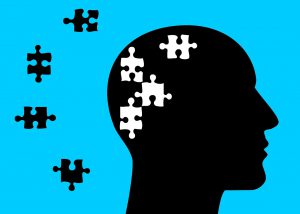When people think of an epileptic seizure, they imagine a person convulsing on the ground. This is normally what occurs, but for older adults, that is not the case. Older adults experience seizures subtly and in different ways. About 25% of newly diagnosed epileptics are adults 60 years or older, and the percentage is expected to rise to 50% by

2020. An epileptic seizure will cause faster cognitive decline if it is left untreated. Many seniors get misdiagnosed as having dementia when in reality they have epilepsy. Knowing the signs is important to get diagnosed and treated properly.
Epilepsy Symptoms
Often times, epilepsy is misdiagnosed as dementia in older adults because of the similarity in symptoms. Focal epilepsy impacts a small portion of the brain which causes:
- Confusion
- Hearing or seeing things
- Sporadic Memory Loss
- Suspended awareness
Other signs that a senior might be having a seizure are:
- Repetitive lip-smacking, hand movements, or jerking. It will last less than a minute and will mimic a tic. If they happen regularly, over a few months, then it is possible they are seizures.
- Irregular behavior– This is when a person is usually happy and talkative, and then out of nowhere, they seem different or “off.”
- Unexplained falls– If a senior falls due to a heart condition, weakness, or accidents, then epilepsy is not the cause. However, if they are falling and blacking out, then it is a warning sign.

Epileptic seizures will have longer-lasting effects on older adults than in those of younger adults. For example, their confusion can last up to two weeks after a seizure. This is often the reason why seniors are misdiagnosed with dementia.
Risk Factors
An older adult is more likely to experience a seizure if they:
- Had a prior stroke
- Have a history of traumatic brain injury or concussions
- Have a family history of seizures, or brain tumors
- Take more than the recommended dose of medications such as antibiotics, painkillers, sleep medications, smoking-cessation drugs, and mental health medications. Be sure to consult with your doctor if you experience any of the mentioned symptoms while on these medications.
If the first seizure is left untreated, about 90% of seniors will have a second occurrence. This leads to a faster decline in their cognitive health, and leads to other health issues including stroke. The risk of falls and broken bones increase as well. While treatment in seniors is tough, it is not impossible. It can be fully controlled with the appropriate medication so seniors can enjoy an improved quality of life. Epilepsy resembles dementia because of the confusion and memory loss that follows up to two weeks after a seizure. Learning the difference between epilepsy and dementia symptoms can make a huge difference in getting the appropriate help, and controlling epilepsy.
